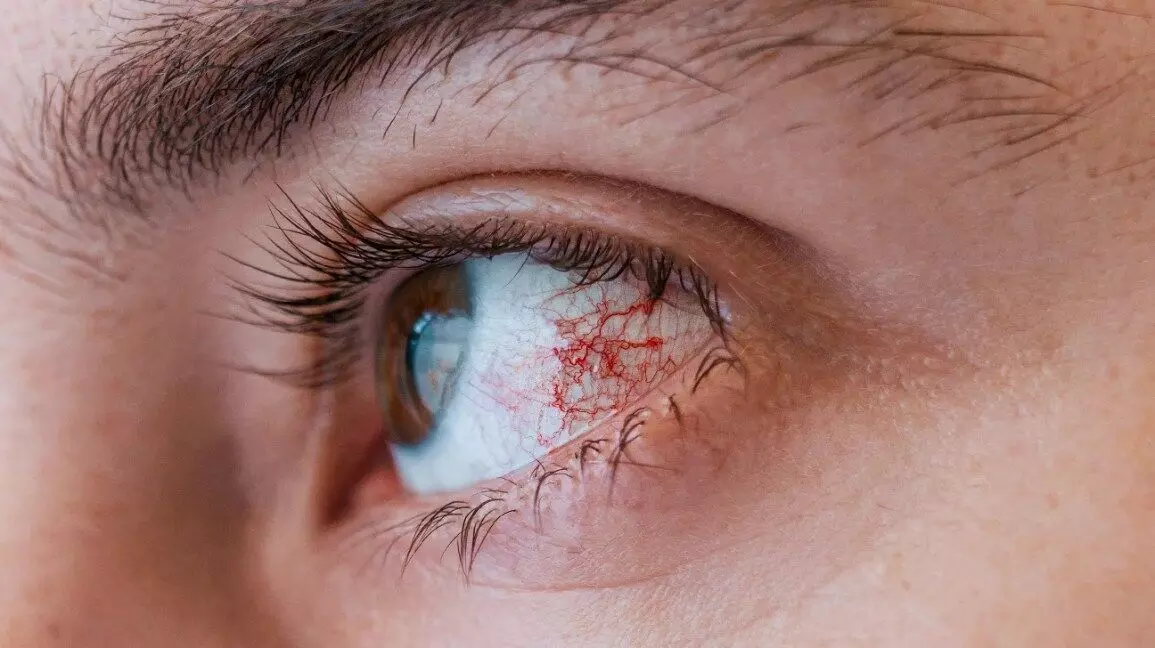Monsoon fury: Over 1000 cases of follicular conjunctivitis reported in Andhra, Telangana, Odisha
Doctors advise to avoid indiscriminate use of antibiotics and steroids and use only under the guidance of a healthcare professional when necessary
By Sulogna Mehta
Hyderabad: Monsoon brings along a host of viral and bacterial infections. And since it has been raining incessantly for over a week in Andhra and Telangana, it has increased the humidity and dampness in the environment which has created a favorable atmosphere for bacteria and viruses to thrive.
As many of these infections are contagious, they can easily be transmitted from one person to another. The latest addition to the list of ailments is conjunctivitis.
Doctors say that there has been an upsurge in the cases of conjunctivitis, also called ‘Pink Eye.’ Conjunctivitis is the inflammation of the conjunctiva, the thin mucous membrane covering the white part of the eye and the inside of our eyelids, caused by various factors, including viral, bacterial infections, parasitic infestation, allergies, or exposure to certain chemicals. Of all the types of conjunctivitis, ‘Follicular Conjunctivitis,’ caused by a particular group of viruses like adenovirus, is most commonly seen during this time.
“While follicular conjunctivitis can be uncomfortable, it is not typically vision-threatening, and most cases resolve without lasting effects. However, timely treatment and proper care are crucial to prevent complications. It can affect individuals of all ages, but young children, the elderly, and those with weak immune systems are more vulnerable to this condition,” says Dr. Muralidhar Ramappa, Cornea Consultant at the L V Prasad Eye Institute (LVPEI), which has diagnosed and treated around 1,000 cases of conjunctivitis since July across the network centers of LVPEI in Telangana, Andhra Pradesh, and Odisha.
Don’t take antibiotics and steroids indiscriminately
Dr. Muralidhar advised, “If you experience any symptoms of conjunctivitis, seek prompt medical care to prevent complications. Take proper precautions and adhere diligently to the prescribed treatment while practicing good hygiene to protect your eyes and prevent infecting those around you. The indiscriminate use of antibiotics and steroids should be avoided and used only under the guidance of a healthcare professional when necessary.”
Types & Symptoms of Follicular Conjunctivitis
Sore throat with conjunctivitis known as ‘Pharyngo-conjunctival-fever (PCF)’: It is often mild and commonly seen in children and young adults who recently had a cold or respiratory infection. Most of the cases we are seeing currently are of PCF.
Advanced conjunctivitis, also known as Epidemic keratoconjunctivitis, is less common and can be severe, affecting the front of the eye (cornea) and causing long-lasting vision problems.
Common symptoms of conjunctivitis include Redness, Itching, Excessive eye discharge, and sensitivity to light. In some cases, it can result in fever and mild throat pain.
Precautions to check its spread
Conjunctivitis is contagious, so the infected persons should isolate themselves from other family members and the community.
Additional precautions to prevent its spread include frequent handwashing, avoiding touching the eyes, and refraining from sharing personal items.
Treatment
Treatment options vary based on the type and cause of the condition. They may include supportive therapy, warm compresses, lubricating eye drops, and analgesics to relieve discomfort or inflammation. Additionally, avoiding wearing contact lenses and gently cleaning the eye discharge with a soft, damp cloth is recommended during treatment.